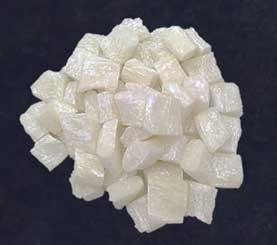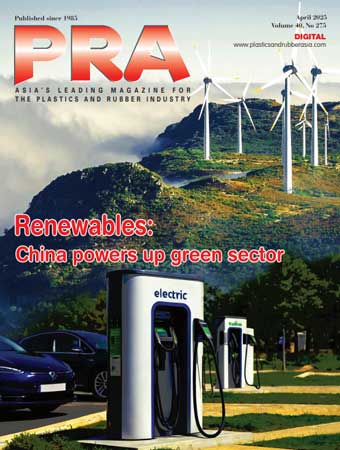Green news: Tosoh develops biobased chlorosulponated PE; Sumitomo Chemical sets up tech for biobased LCP plastics

Japan’s Tosoh Corporation, one of the largest chlor-alkali manufacturers in Asia, says it has developed chlorosulphonated polyethylene (TOSO-CSM) from bio-based raw materials and has established the technology for its mass production. It adds that this is the world’s first development of chlorosulphonated PE using bio-based raw materials.
TOSO-CSM is widely used in industrial goods, adhesives, rubberised fabrics, handrails, and more. Its high durability helps extend the lifespan of the products in which it is applied, thereby contributing to reduced environmental impact.
While TOSO-CSM is a material that uses relatively less petroleum resources compared to general plastics, further reduction in the use of petroleum resources has been required from the perspective of reducing greenhouse gas emissions.
The newly developed TOSO-CSMusing bio-based raw materials leverages Tosoh’s accumulated expertise in polymer development and the application of bio-based materials, significantly reducing the use of petroleum resources while maintaining high functionality and achieving lower environmental impact.
More than 90% of the carbon atoms in the product have been replaced with bio-based components, and greenhouse gas emissions throughout the product’s life cycle, from manufacturing to use and disposal, are reduced by approximately 30% compared to conventional products.
Tosoh draws on its accumulated technology and experience to advance prototype testing of this product and realise its earliest-possible market launch. The company is committed to further reducing the environmental impact of high-performance polymer products toward achieving carbon neutrality by 2050 and contributing to the realisation of a sustainable society.
In other news, compatriot firm Sumitomo Chemical has successfully established mass production technology for liquid crystal polymer (LCP) using a monomer derived from biomass materials. As a global leader in the LCP market, the company will accelerate the development of a mass production system for bio-based LCP leveraging this technology, aiming to obtain customer certification by the end of fiscal 2026 and to begin supplying the product from fiscal 2027.

LCP is a type of super engineering plastic that excels in heat resistance and fire resistance. It is used in a wide variety of applications, including materials for electric and electronic components in smartphones, automotive parts, and office automation equipment. Most of the raw materials used in such industrial applications are currently derived from fossil resources, and in recent years, there have been growing calls to switch all industrial product materials to biomass materials in an effort to achieve a sustainable society.
In the LCP manufacturing process using biomass materials that it has successfully developed, Sumitomo Chemical has adopted a segregation approach that completely separates biomass materials from other materials during production. This approach enables precise control of the biomass content and can clarify how much biomass materials are included in the product.
In addition to the segregation approach, there is another approach called mass balance, in which when biomass materials and other materials are mixed to manufacture a product, the characteristics of the biomass materials is allocated to part of the output of the product based on the proportion of biomass materials used in the manufacturing process.
Sumitomo Chemical says it plans to meet customer needs by considering the unique features of each of these approaches.
In recent years, significant progress has been made in the industrial application of synthetic biology, driven by rapid technological advancements through the integration of biotechnology and digital technology.
By combining the chemical technologies that it has cultivated for many years as a diversified chemical manufacturer with synthetic biology, Sumitomo Chemical aims to develop high-performance products that are difficult to produce through traditional chemical synthesis alone and to enhance energy efficiency in manufacturing processes, it adds.
(PRA)SUBSCRIBE to Get the Latest Updates from PRA Click Here»









